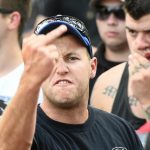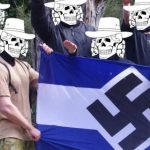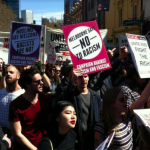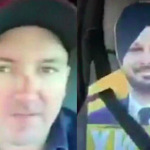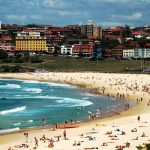Kennerley’s Racist Outburst: Demonising to Distract
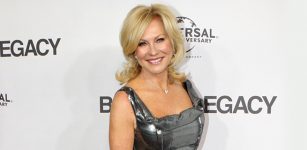
Kerri-Anne Kennerley’s overtly racist blowout on Studio 10 last week is an example of the classic ad hominem technique of seeking to rebut an argument by attacking the group who are making it rather than focusing on the topic itself.
The outburst
The veteran television presenter had her outburst during a discussion about 26 January Invasion Day protests, which saw record-breaking crowds call not just for a change to the date, but for a change to the systemic violence and bias Indigenous people face in this country.
Mid-discussion, Ms Kennerley turned to the camera with her face creased up and asked an unrelated question about what the demonstrators have done in relation to First Nations “babies and five-year-olds” being raped in the outback, along with their mothers and sisters.
Fellow panellist Yumi Stynes interrupted Kennerley’s diatribe, calling her out for being xenophobic. She said, “That is not even faintly true, Kerri-Anne. And you’re sounding quite racist now.” She added that the TV host had clearly drawn a line between Aboriginal people, rape and child abuse.
Kennerley then declared that she was “seriously offended”. She continued to assert that she was merely concerned with helping “Aboriginal elder women”. And then she bizarrely implied that the protesters had done nothing for Indigenous women in the outback.
Demonising to distract
“The issues that she brought up were irrelevant to the segment at the time,” said Gwenda Stanley, a representative of Indigenous rights group FISTT. She questioned what Kennerley has actually done herself for First Nations women in remote communities.
The Gomeroi woman made clear that she wasn’t denying that issues exist, but they “could be dealt with in a proper manner”. And, of course, issues of domestic violence, sexual assault and child abuse exist in all communities throughout Australia.
As retired archaeologist Lowanna Gibson pointed out in news.com.au, while First Nations women are 32 times more likely to be hospitalised for family violence, 74 percent of Aboriginal and Torres Strait Islander adults are married to non-Indigenous people.
“She’s racially vilified Aboriginal men,” Ms Stanley told Sydney Criminal Lawyers. “She used her media platform to racially vilify Aboriginal men in general, not just those in the communities she referred to.”
The colonisers’ strategy
It seems obvious that the problem Ms Kennerley was having at the time of her outburst was that she doesn’t like the abolish Australia Day debate. And in order to distract from her discomfort, she demonised outback Aboriginal communities, which is a common tactic.
Take soon to be outgoing PM Scott Morrison. Last week, BHP chief executive Andrew Mackenzie said that he supported a constitutionally enshrined Indigenous voice to parliament, as proposed by First Nations representatives of the Referendum Council in the Uluru Statement from the Heart in 2017.
The Turnbull/Morrison government has flatly rejected the proposal. And when questioned about it last week, the prime minister said, “I have got to tell you, I’m more concerned about young Indigenous girls committing suicide. That’s what concerns me more than anything else.”
And again, this is the same manoeuvre employed by Kerri-Anne. While it’s true that First Nations youth suicide rates are high, Morrison was being asked about something quite different and rather than respond, he changed the subject by pointing to a problem in Aboriginal communities.
The usual suspects
Indeed, Ms Kennerley’s reference to child abuse in remote Aboriginal communities is not the first time white Australia has sought to demonise these communities in regard to such claims for its own paternalistic reasons.
In 2007, the Howard government sent the army into 73 remote Aboriginal communities in the Northern Territory. Known as the Intervention, this policy was set in motion following media reports that paedophile rings were operating in First Nations communities in central Australia.
The ABC’s Lateline ran a 2016 story about these alleged rings operating in Mutitjulu: a remote community east of Uluru.
However, the key witness turned out to be a fraud. He was actually an advisor to then Indigenous affairs minister Mal Brough, who’d been called into question in regard to unsubstantiated claims he’d been making about the paedophile rings prior to the Lateline investigation.
The Lateline program sparked an 18 month, multi-million dollar investigation by the Australian Crime Commission, which found no evidence of organised paedophile rings operating in Northern Territory Aboriginal communities.
What actually transpired was the government took control of the land dozens of First Nations communities, whilst the investigation’s Little Children Are Sacred report only found evidence of one paedophile ring operating in the region involving Aboriginal girls and non-Indigenous mine workers.
Asking for it
And while some have spoken up in support of Kennerley, stating she wasn’t being racist, but was actually concerned about Aboriginal and Torres Strait Islander women, their argument doesn’t quite stack up when you consider it against some earlier comments made by the TV host.
Back in 2010, Victoria police were investigating sexual assault allegations made by a 20-year-old woman against a number of men, including two Collingwood football players, over an incident that occurred at 3 am the morning following the AFL grand final.
On her Channel Nine morning program at the time, Ms Kennerley weighed in on the national debate that was triggered, sympathising with the football players who’d “put themselves in harm’s way by picking up strays”.
“But, come on, we know girls,” Kennerley continued on to the viewers, “this is not a new thing. Girls have been throwing themselves at famous sports people for years.” And in a statement released later, she implied that women are just as much to blame as the men in these alcohol-fuelled incidents.
White-washed
Ms Stanley said that the social issues Kerri-Anne referred to occur in all communities, “black, white and brindle”. And the TV host “used her media platform like a typical colonialist”, just as Prue MacSween did on Sunrise last March, when she called for a return to the Stolen Generations.
“They’re still talking about our issues at irrelevant times,” Ms Stanley concluded. “And they’re not bringing us to the table. They’re not giving us the airtime in which they should give Aboriginal people a proper voice.”


